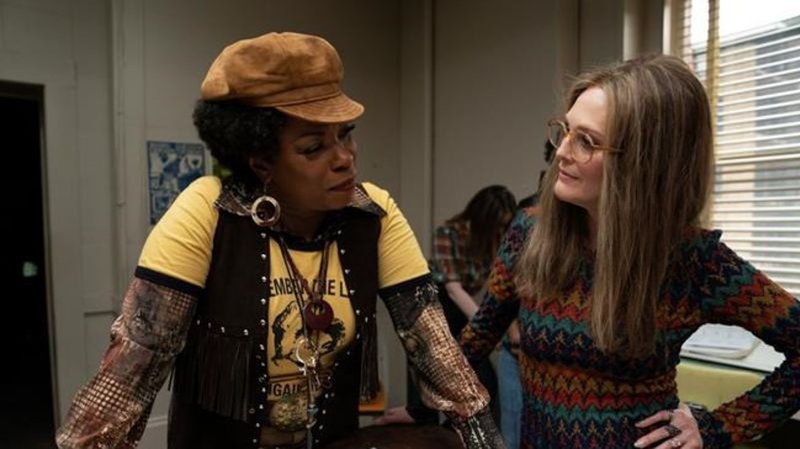
New Steinem biopic shines light on a sisterhood of activists
Among the pithy quips attributed to Gloria Steinem over the years is this reply to why she wasn’t interested in getting married: “I can’t mate in captivity.”
She did eventually marry, to her own surprise, at age 66. But that scene takes up barely a minute in Julie Taymor’s 139-minute long new biopic about Steinem, “The Glorias,” not just because it came late in a long (and still actively ongoing) life, but because there are so many other important relationships to focus on, namely the key women who partnered with Steinem — in friendship, and in activism — on her long journey to becoming America’s most visible feminist.
Women like Bella Abzug, Florynce Kennedy, Dorothy Pitman Hughes and Wilma Mankiller, all of whom (and more) are portrayed in the film, giving moviegoers a quick but valuable education in the history of the women’s movement.
“One of the great things about this movie,” Steinem, 86, said in a recent interview, “is that it will lead viewers into knowing more about these women.” Women who, perhaps excepting Abzug, were not nearly as familiar to the public as their very recognizable colleague.
